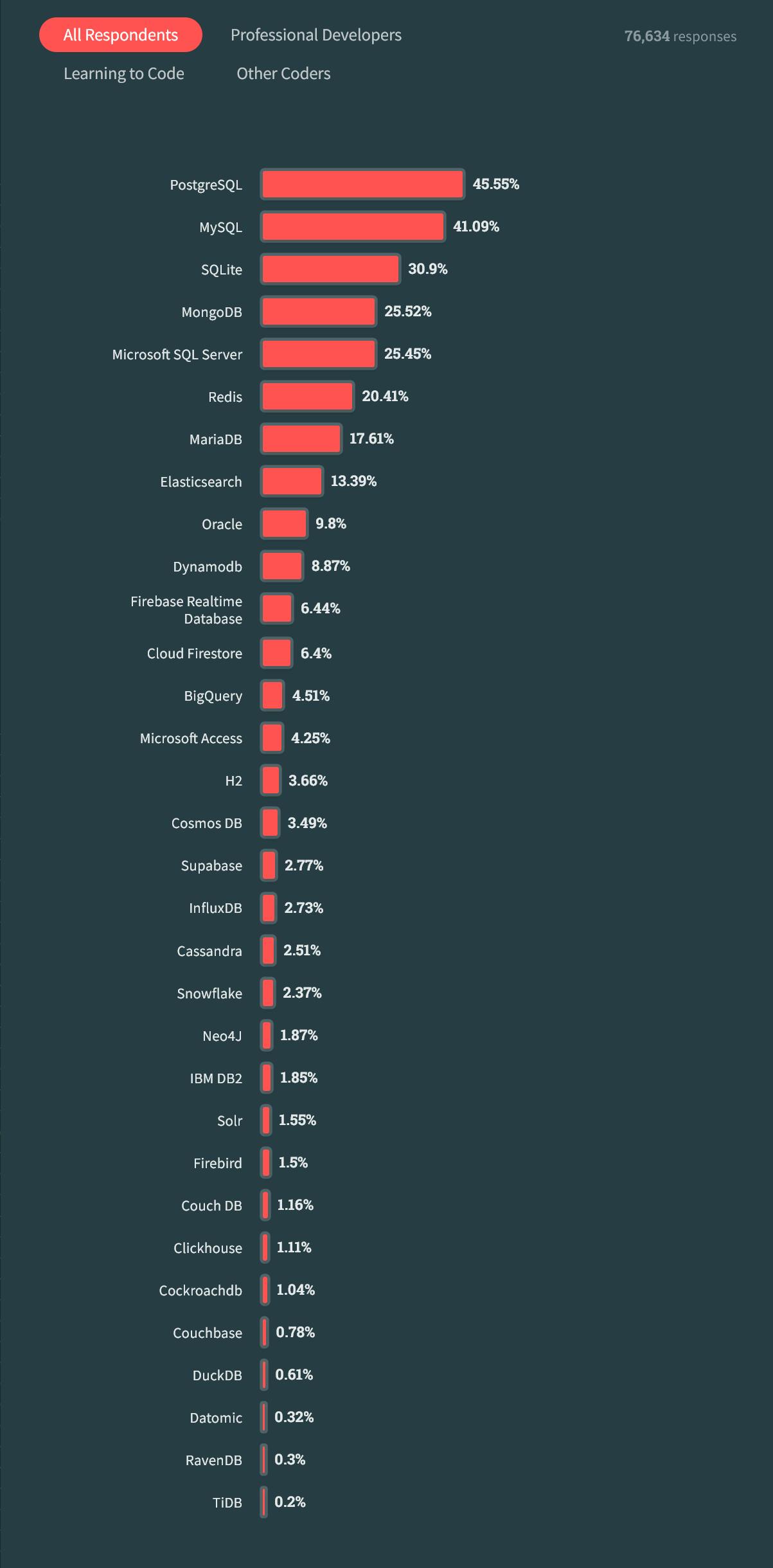Couchbase vs. MongoDB
Whether it’s technical features, adoption and support, or cloud solutions, MongoDB is trusted by more organizations to run a wider range of applications than Couchbase for a number of key reasons.
Here’s a brief look at 6 key feature differences between both databases.
Starting out as a key-value (k-v) store for simple caching workloads, Couchbase has evolved over the past few years to include support for indexing, text search, and analytics.
However, this growth in functionality comes at a cost: an explosion in complexity for developers. Couchbase requires developers to learn four different, incompatible query languages. And, for Ops teams that run CouchDB clusters, each node type introduces different hardware, scaling, and high-availability requirements to navigate.
As a result, organizations are more likely to use Couchbase as a Memcached replacement, or as a simple session store (see Amadeus example below).
MongoDB on the other hand, avoids this complexity with consistent secondary indexes and a rich, unified query language.
MongoDB = Developer Velocity
Developers want to work with MongoDB. A lot.
In Stackoverflow’s 2023 survey of 76,634 developers working with database technologies, MongoDB remains among the most popular databases. In the same survey, Couchbase was ranked in the bottom five most unpopular database technologies. There was a similar disparity in the 'Most Admired' and 'Most Desired' results when comparing the two vendors.
The results matter for a couple of reasons:
Stack Overflow’s annual Developer Survey is the largest of its kind anywhere in the world; for the 2023 edition, the publication canvassed over 90,000 developers from 185 countries.
Being amongst the least popular, desired or admired database technologies, is a stark warning for IT and business decision makers looking at Couchbase.
We live in a “developer-defined economy”, where business success is tightly linked to how empowered developers at your organization are. Developers, hamstrung by tools they dislike will hinder an organization's ability to innovate and compete.
A recent study by McKinsey takes this concept a step further. Ranking businesses on a “Developer Velocity Index (DVI),” McKinsey found that firms with a higher DVI score were more successful than their peers on a number of critical business measures, like revenue CAGR. The report concludes, “Our research shows that best-in-class tools are the top contributor to business success—enabling greater productivity, visibility, and coordination.”
The message is clear; If you’re an enterprise that wants to compete, don’t choose the database developers don't “Desire” working with.

Innovators Choose MongoDB
It’s not just developers choosing MongoDB.
When faced with a decision between Couchbase and MongoDB, leading companies choose MongoDB.
According to Olaf Schnapauff, CTO of travel technology firm Amadeus, "Amadeus is using MongoDB as the Swiss army knife of NoSQL technology. We also use Couchbase as a key value store and as a caching layer for large query volumes when the search is across only a few dimensions.”
Elsewhere, iconic computer game studio Sega selected MongoDB over Couchbase for their new mobile game development studio, Sega HARDlight, due to its ease of management and more mature support and tools.
For Jeremy Kelley, co-founder of SaaS provider Leveler.com, the move from Couchbase to MongoDB brought 30x higher performance and 3x lower development overhead.
“We started out with Couchbase. As many of our customers are field rather than office-based, I was attracted by its mobile capabilities. But it really didn’t work out for us.” According to Kelley, Couchbase was fast for simple key-value lookups (sound familiar?), but performance suffered when attempting anything more sophisticated.
The list goes on.
MongoDB Atlas vs Couchbase Capella
More organizations are moving towards a cloud, and more recently a multi-cloud, model. Perhaps the starkest difference between MongoDB and Couchbase, therefore, is their respective cloud offerings.
MongoDB Atlas, MongoDB’s fully managed DBaaS (Database as a Service), launched in 2016. Couchbase Capella launched in October 2021.
MongoDB Atlas is available across all of the major cloud providers (Amazon Web Services [AWS], Google Cloud Platform, and Microsoft Azure) in 110+ regions around the world.
Couchbase Capella, on the other hand, is only available on AWS and Google Cloud, with 15 and 29 regions available respectively. True multi-cloud support is also not available from Couchbase. How about running federated queries against hot data and your data lake? Nope. A competitor regarding the Edge and Mobile? Not really.
Put simply, if you’re an enterprise deploying to the cloud, there’s a clear choice. MongoDB Atlas is by far the more mature, powerful, and versatile offering.
Summary MongoDB vs Couchbase
To recap, MongoDB is:
- One of the most popular and admired databases amongst developers
- Preferred by customers for a wide range of tasks, with Couchbase regularly relegated to a simple key-value store/Memcached replacement
- The superior DBaaS cloud offering, with MongoDB Atlas leagues ahead of Couchbase Cloud
With 45,000+ customers in more than 100 countries around the world, including more than half of the Fortune 100, more than 300 million downloads, 1,000+ partners, and over 1.5 million developers and other IT professionals registering for training through the MongoDB University, MongoDB is the market’s most widely deployed non-tabular document-based database.